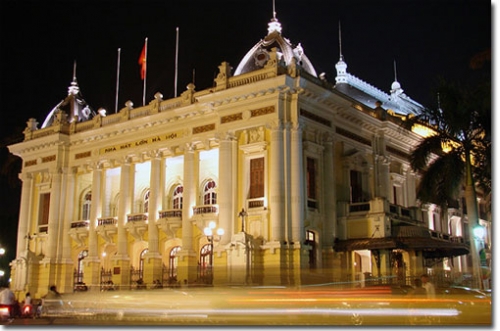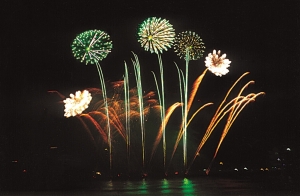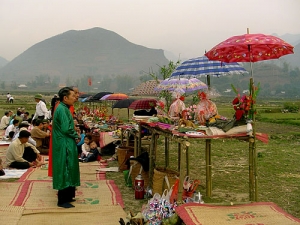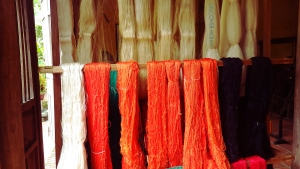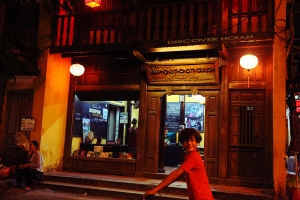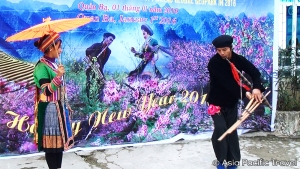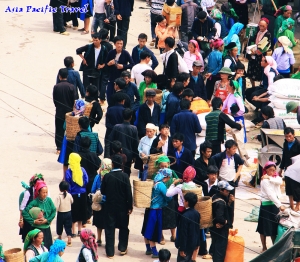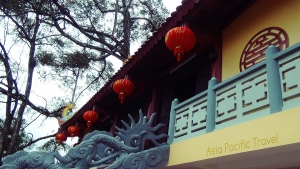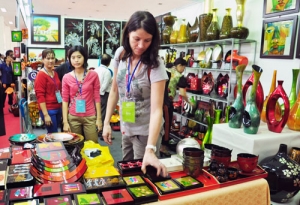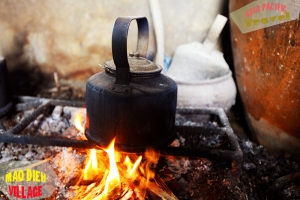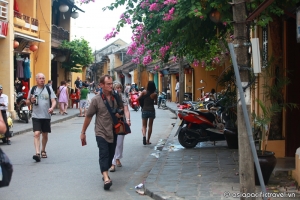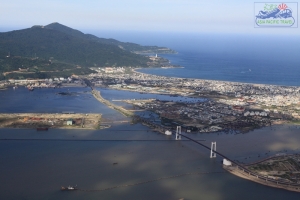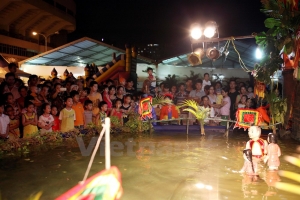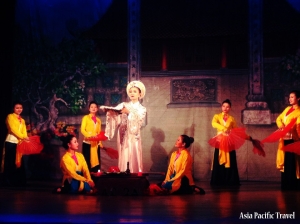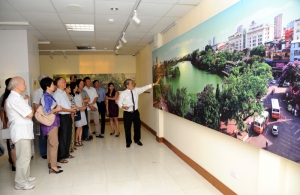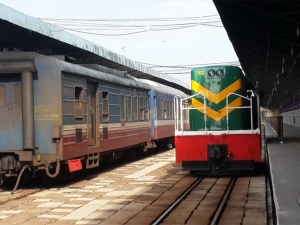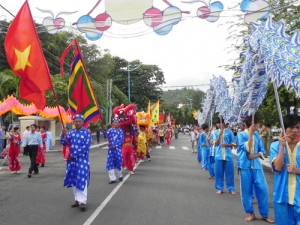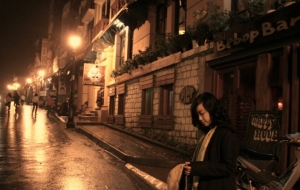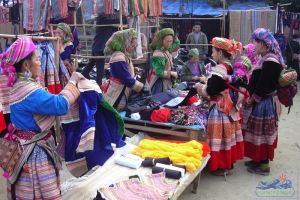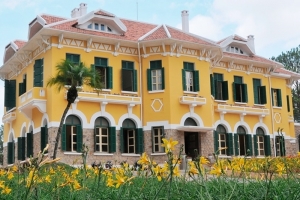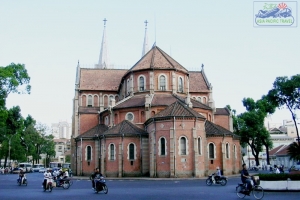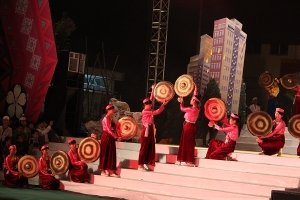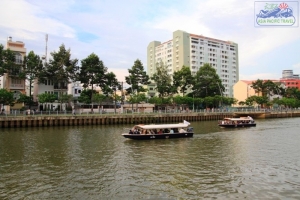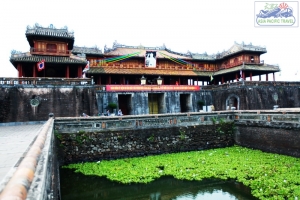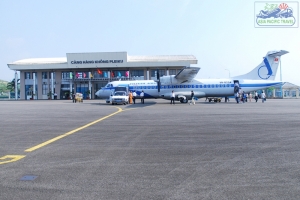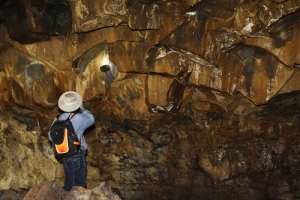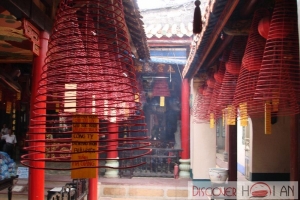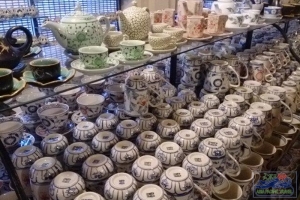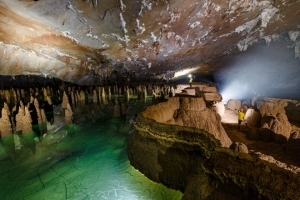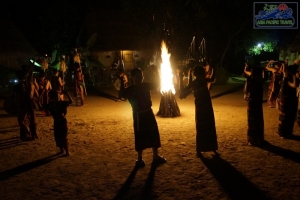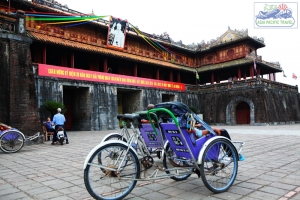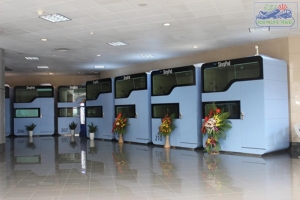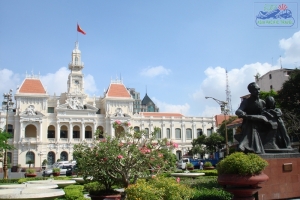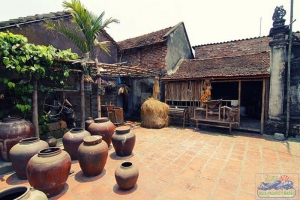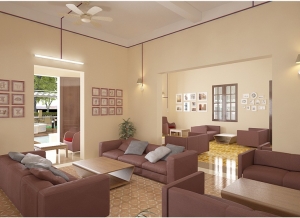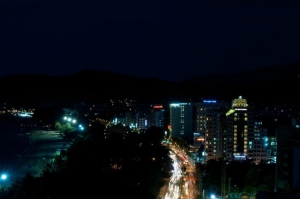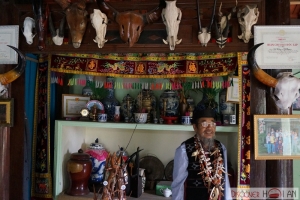Looking down Trang Tien Street, you can see Hanoi Opera House standing strongly, deserving to be one of Hanoi's grandest buildings.
Built by the French in 1911, and renovated in the late 1990s, this is an incredible building. Hanoi Opera House is an old theatre with French architecture and typical Gothic and Mosaic characters reflected on the door domes and the glassed room respectively. The facade is colonial French with pillars and balconies overlooking the city center. The 900-seat opera house plays host to visiting foreign performances as well as Vietnamese symphonies. The exterior is a delightful mix of French neo-classical design with shuttered windows, wrought iron balconies and tiles friezes.

For a long time, Hanoi Opera House has been a rendezvous for those who love theatrical performance and traditional songs and music, symphonies, opera and classical opera. It is also a tourist attraction for local and foreign visitors.
History of Hanoi Opera house
Hanoi Opera House is a great construction built by the French Colonialist Government during the early years of the 20th century. Harley and Broyer were designers. This design was much modified by ideas of some architects. The work was started on june, 7th, 1901, undertaken by a local supervisor - Harley Architect. Mr Travary and Savelon were in charge of the construction. The work, the peak of which is 34 meters above the ground, was carried out in a total area of 2600 square meters with the 87-meter length and 30-meter width. The designers consulted Corankta Greek ancient architecture in combination with Tuylory Castle and Opera de Paris to form a unique architecture.

Hanoi Opera House has a great value in history, architecture as well as its use. It was a historical evidence of Vietnamese social and cultural development under French rule, a vestige for an architectural development stage dating back to the end of the 19th and early 20th centuries in Vietnam. The theatre has seen many significant historical events associated to the August Revolution and the early years of Vietnam Democratic Republic.
Striking characteristics
Hanoi Opera House is renowned for its unique architecture and good composition. It is furnished rationally and harmoniously. Since its establishment, Hanoi Opera House is the largest theatre in Vietnam.
Previously the site was a big pond, adjacent to the city gate of Tay Long (also called Tay Luong) of the ancient Thang Long Capital. The construction met with many difficulties, because the foundations of the theatre were built on the pond. Before building a concrete foundation, nearly one metre thick, the pond was emptied and dredged, then 30,000 hard bamboo stakes were placed on its bed.
Hanoi Opera House is of the same architectural style as the Opera House in France. Some foreign architects said that due to being built nearly 300 years after the Paris Opera House, Hanoi Opera House avoids superfluous architectural details, which make it more magnificent and attractive. Inside the opera house are a large stage and a main audience room with a size of 24x24m, with many small rooms for audience on the central floor. The middle staircase leads to a large Hall on the second floor. The sub-staircase and corridors are located in both sides.
At the back of the Opera House is a management chamber consisting of 18 make-up rooms, 2 rooms for voice training, 1 library and 1 meeting room. Facing the stairs is a magnificent mirror room on the second floor. Opera house has been so far a typical, large-scaled art showing place, wherein party state meetings and international conferences are held. It is considered a cultural work with the best value in Vietnam, a unique architectural work with great historical, cultural, architectural and fine-art value, a unique works in urban area as well as in the capital city. The theatre has been equipped with state-of-art facilities and appliances, compatible for all types of artistic performances, from folk music and songs, ballets and piano to classical opera, reformed opera, Vietnamese operetta and drama, all made great impressions on the audience. Hanoi Opera House has also successfully organized many large-scale international concerts.

Being an ancient architecture work, the Opera House is now becoming a national art work of international renown, which contributes to our country's modern cultural field, also serves as a foundation in cultural exchanging, in our present social economic development and the national cultural innovation in particular.
Hanoi Opera House is a worthy artistic centre, a cultural and architectural relic of the capital Hanoi. This is truly a beautiful building in Hanoi and the best place to see the Opera House is from the 6th floor of the Hanoi Hilton.
If tourists in Vietnam Travel have chance to visit Hanoi, Hanoi Opera House is a must-see place that should not be missed!


